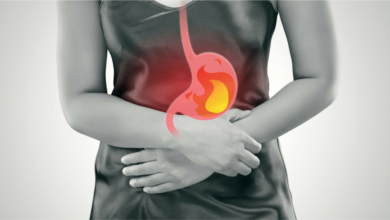Dangerous Diseases in Summer 2023 & Their Treatment

Summer is a season most people eagerly await, as it brings warmth, vacations, and outdoor activities. However, along with the joys of summer, there are certain risks associated with the season. The soaring temperatures and environmental changes create conditions that favor the spread of various diseases. In this article, we will explore some of the dangerous diseases in the summer of 2023 and discuss their treatment options. So, let’s dive in and discover how to stay healthy and protected during this season.
Summer brings along various health concerns, and being informed about them can help us protect ourselves and our loved ones. Let’s delve into some of the dangerous diseases that may pose a risk during the summer of 2023 and the treatments available to combat them.
Read More: 3 Best Drinks to Satisfy Your Thirst in 2023
Heatstroke: A Deadly Threat
Heatstroke is a severe condition that occurs when the body’s temperature rises to dangerous levels. It can lead to organ failure and even death if not treated promptly. The symptoms include high body temperature, rapid heartbeat, confusion, and dizziness. Immediate medical attention is crucial for heatstroke patients, and they should be moved to a cool place while awaiting professional help.
Sunburn: Protecting Your Skin
Excessive exposure to the sun’s ultraviolet (UV) rays can cause sunburn. It can be painful and increase the risk of skin cancer in the long term. To prevent sunburn, it is essential to use sunscreen with a high SPF, wear protective clothing, and limit exposure to direct sunlight during peak hours. In case of sunburn, applying aloe vera gel or moisturizers can help soothe the affected skin.
Dehydration: Stay Hydrated
Dehydration is a common problem during hot summer months. It occurs when the body loses more fluids than it takes in. To stay hydrated, it is important to drink plenty of water throughout the day. Avoid sugary and alcoholic beverages as they can worsen dehydration. If severe dehydration occurs, medical attention should be sought immediately.
Food Poisoning: Safe Food Handling
Warmer temperatures can facilitate the growth of bacteria in food, leading to food poisoning. To prevent this, it is crucial to practice proper food handling and storage techniques. Wash hands thoroughly before cooking or eating, cook food at appropriate temperatures, and refrigerate leftovers promptly. If symptoms such as nausea, vomiting, or diarrhea occur, medical advice should be sought.
Vector-borne Diseases: Preventing Insect Bites
Summer is also a time when vector-borne diseases, such as dengue fever, malaria, and Zika virus, become more prevalent. To prevent these diseases, it is important to protect yourself from insect bites. Wear long-sleeved clothing, use insect repellents, and eliminate stagnant water sources that serve as breeding grounds for mosquitoes.
Respiratory Infections: Maintaining Good Hygiene
Certain respiratory infections, such as common colds and flu, can still occur during the summer months. Good hygiene practices, such as frequent handwashing, covering the mouth when coughing or sneezing, and avoiding close contact with sick individuals, can help reduce the risk of contracting or spreading these infections.
Allergies: Managing Common Triggers
Summer allergies can be bothersome for many individuals. Pollen, mold spores, and dust mites are common triggers during this season. Minimize exposure to these allergens by keeping windows closed, using air purifiers, and regularly cleaning your living space. Over-the-counter antihistamines and nasal sprays can provide relief for mild allergy symptoms, but consulting a healthcare professional is recommended for severe cases.
Waterborne Diseases: Ensuring Safe Water Consumption
Contaminated water sources can harbor various pathogens, leading to waterborne diseases like diarrhea and hepatitis. It is essential to drink safe and clean water. If tap water quality is questionable, consider using water filters or boiling water before consumption. Additionally, practicing good hygiene, such as washing hands before eating or preparing food, can help prevent the transmission of waterborne diseases.
Conjunctivitis: Eye Care in Summer
Conjunctivitis, also known as pink eye, is an inflammation of the conjunctiva that can cause redness, itching, and discharge from the eyes. To prevent its spread, avoid touching or rubbing the eyes, practice good eye hygiene, and avoid sharing personal items like towels or pillows. If symptoms persist or worsen, consult an eye care professional for appropriate treatment.
Heat Exhaustion: Recognizing and Treating
Heat exhaustion is a condition that occurs due to prolonged exposure to high temperatures and inadequate fluid intake. Symptoms include heavy sweating, weakness, dizziness, and nausea. If someone experiences heat exhaustion, it is important to move them to a cool place, provide hydration, and seek medical assistance if symptoms persist or worsen.
Prickly Heat: Managing Skin Rashes
Prickly heat, also known as heat rash, is a common skin condition that arises due to blocked sweat ducts. It can cause itchy, red bumps on the skin’s surface. To manage prickly heat, keep the affected areas clean and dry, wear lightweight and breathable clothing, and apply soothing lotions or creams. Avoid excessive sweating and seek medical advice if the condition persists.
Heat Cramps: Preventing and Alleviating
Heat cramps are painful muscle contractions that can occur due to excessive sweating and electrolyte imbalances. To prevent heat cramps, it is important to stay hydrated and replenish electrolytes lost through sweating. Consuming electrolyte-rich drinks or foods and gently stretching cramped muscles can help alleviate the discomfort.
Gastrointestinal Infections: Practicing Good Sanitation
Gastrointestinal infections, such as gastroenteritis, are more common during the summer months. To prevent these infections, practice good sanitation and hygiene. Wash hands regularly, especially before handling food, and ensure food is properly cooked and stored. If symptoms like vomiting, diarrhea, or abdominal pain occur, seek medical advice.
Read More: 7 Rehydration Walks In Weather Hot
Conclusion
As the summer of 2023 approaches, it is crucial to be aware of the potentially dangerous diseases that can arise during this season. By taking necessary precautions, such as staying hydrated, protecting against insect bites, practicing good hygiene, and seeking medical attention when needed, we can minimize the risks and enjoy a healthy summer.
FAQs
How can I prevent heatstroke during summer?
To prevent heatstroke, it is important to stay hydrated, avoid excessive sun exposure, and seek shade or cool areas when necessary. Wearing lightweight and breathable clothing can also help regulate body temperature.
Are there any natural remedies for sunburn?
While aloe vera gel is often used to soothe sunburned skin, other natural remedies like applying cool compresses, using chamomile tea bags, or taking oatmeal baths can also provide relief. However, severe sunburn should be evaluated by a healthcare professional.
Can I get food poisoning from eating outdoors during summer?
Yes, the risk of food poisoning increases when consuming food outdoors during the summer. To minimize the risk, ensure proper food handling, maintain proper temperatures for perishable foods, and use ice packs or coolers to keep food chilled.
How can I protect myself from mosquito-borne diseases?
To protect yourself from mosquito-borne diseases, use insect repellents, wear protective clothing, and avoid areas with high mosquito activity. It is also important to eliminate stagnant water sources where mosquitoes breed.
What should I do if I experience symptoms of a gastrointestinal infection?
If you experience symptoms like vomiting, diarrhea, or abdominal pain, it is important to stay hydrated and rest. If symptoms persist or worsen, seek medical advice for proper diagnosis and treatment.







